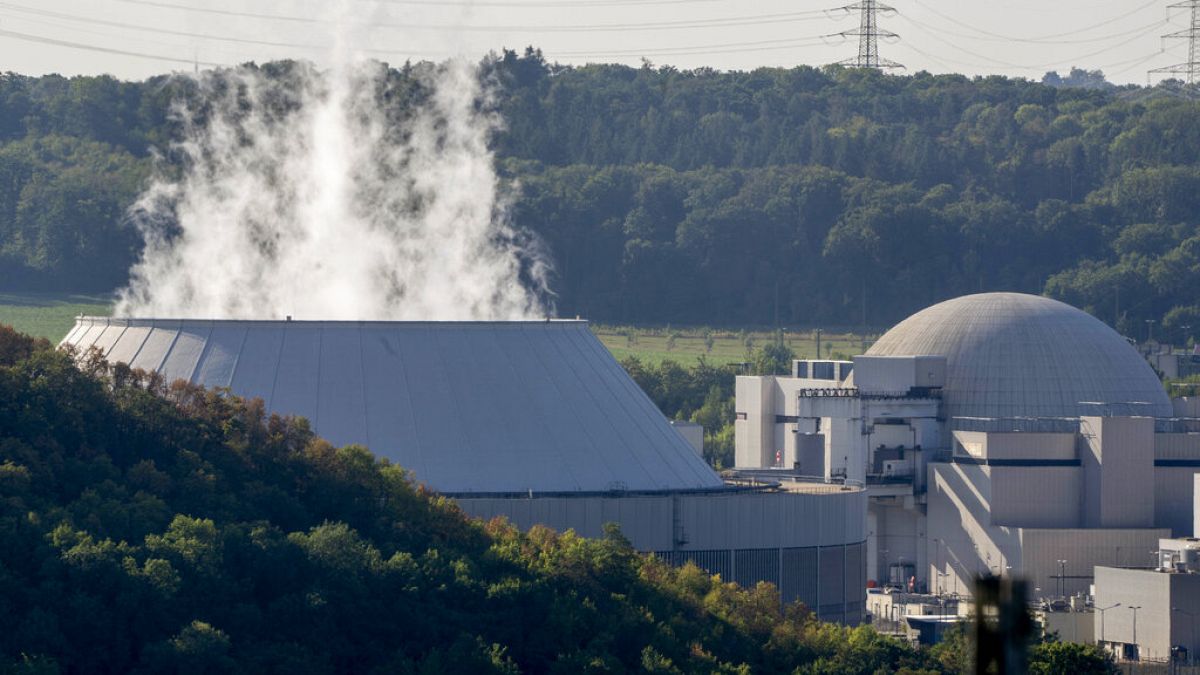Trains, automobiles and even planes could be run on nuclear power or even natural gas while being treated as ‘green’ under proposed EU rules
Atomic power and even natural gas could be used to produce ‘low-carbon’ fuels to replace fossil oil and gas, according to a new proposal from the European Commission.
The EU executive today (27 September) opened a one-month public consultation on draft technical criteria related to revised market rules adopted in April, which broaden the scope of gas market regulation to include greener options like biomethane and hydrogen.
To qualify as a low-carbon fuel, the hydrocarbon in question – which could be anything from kerosene used to power aircraft, methane for heating, or hydrogen to drive industrial processes – must have an overall carbon footprint at least 70% smaller than burning the fossil equivalent.
The EU executive says electricity drawn from the power grid to produce hydrogen should be assumed to entail zero emissions as long as the amount used corresponds to the periods when renewables or nuclear dominated production and set the wholesale market price.
In addition to enabling the use of nuclear power for fuel production, the draft regulation also stipulates when and how carbon capture and storage (CCS) might be used to achieve the assumed 70% emissions reduction.
Any deployment of CCS would have to take into account “the capture rate of CO2 from low carbon fuel production, as well as all emissions from the operation activities for carbon capture, transport of CO2 and emissions from injection into the permanent storage site”, the draft legislation stipulates.
Capturing CO2 during industrial processes or from chimneys is itself an energy-intensive process that demands yet more energy as the capture rate increases, while the Commission also appears to be recognising the inherent inefficiencies in purifying, compressing, transporting and pumping carbon dioxide deep below the seabed.
Low-carbon fuels – not to be confused with zero-emissions ‘renewable fuels’ produced, for example, using dedicated wind farms to power ‘green’ hydrogen production – are seen by proponents as a way to significantly reduce the climate impact of transport, heating and industry. Critics see them as a way to shore up demand for fossil fuels or nuclear power amid plans to accelerate the roll-out of cheaper wind and solar.
“Low-carbon fuels have an important role to play in the energy transition, as they cause fewer emissions than unabated fossil fuels and can support the uptake of renewable fuels,” the Commission said in a statement.
Green groups have demanded stringent standards for the certification of such fuels, and urged the EU executive not to rush through the regulation, which it is not required to adopt until August next year. Energy Commissioner Kadri Simson said she intends to finalise the rules before the end of her five-year mandate in the autumn.
Also today (27 September), the Commission published terms and conditions for a second round of financing for renewable hydrogen production, worth up to €1.2 billion, from its European Hydrogen Bank. New security of supply criteria mean that no more than a quarter of electrolyser capacity can be sourced from, say, China.
“This bold step, aligned with the Net-Zero Industry Act and the recommendations of the Draghi report, underscores the importance of building a robust European supply chain,” said Jorgo Chatzimarkakis, CEO of the trade association Hydrogen Europe.
The Renewable Hydrogen Coalition, another trade group, welcomed the provisions to promote European production, but urged the EU to stimulate demand for green hydrogen by funding the adaptation of energy intensive sectors such as steel and chemicals production.
Checkout latest world news below links :
World News || Latest News || U.S. News
The post Commission sees role for nuclear and CCS in ‘clean’ fuel production appeared first on WorldNewsEra.

